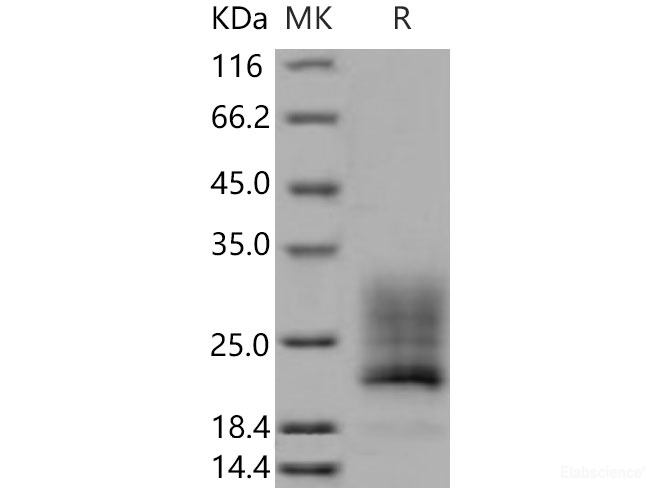Background
Regenerating islet-derived protein 4, also known as REG-like protein, REG4, GISP and RELP, a member of the regenerating gene family belonging to the calcium (C-type) dependent lectin superfamily, has been found to be involved in malignancy in several different organs including the stomach, colorectum, pancreas and prostate. It is highly expressed in the gastrointestinal tract and markedly up-regulated in colon adenocarcinoma, pancreatic cancer, gastric adenocarcinoma, and inflammatory bowel disease. Expression of the Reg4 in different cell types has been associated with regeneration, cell growth and cell survival, cell adhesion and resistance to apoptosis. REG4 protein overexpression is associated with an unfavorable response to preoperative chemoradiotherapy and may be used as a predictive biomarker clinically. REG4 may play an important role in the development and progression of colorectal cancer, as well as in intestinal morphogenesis and epithelium restitution.







